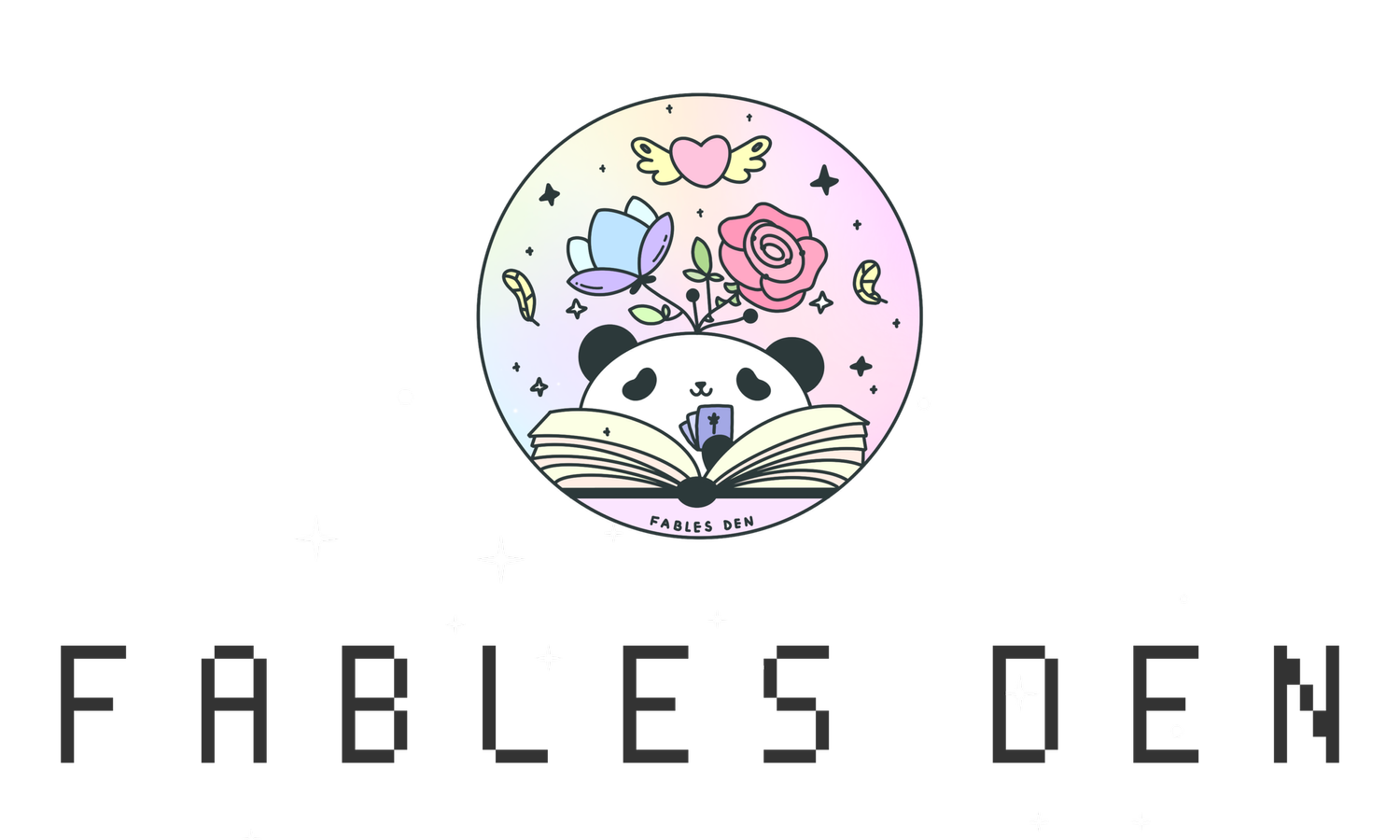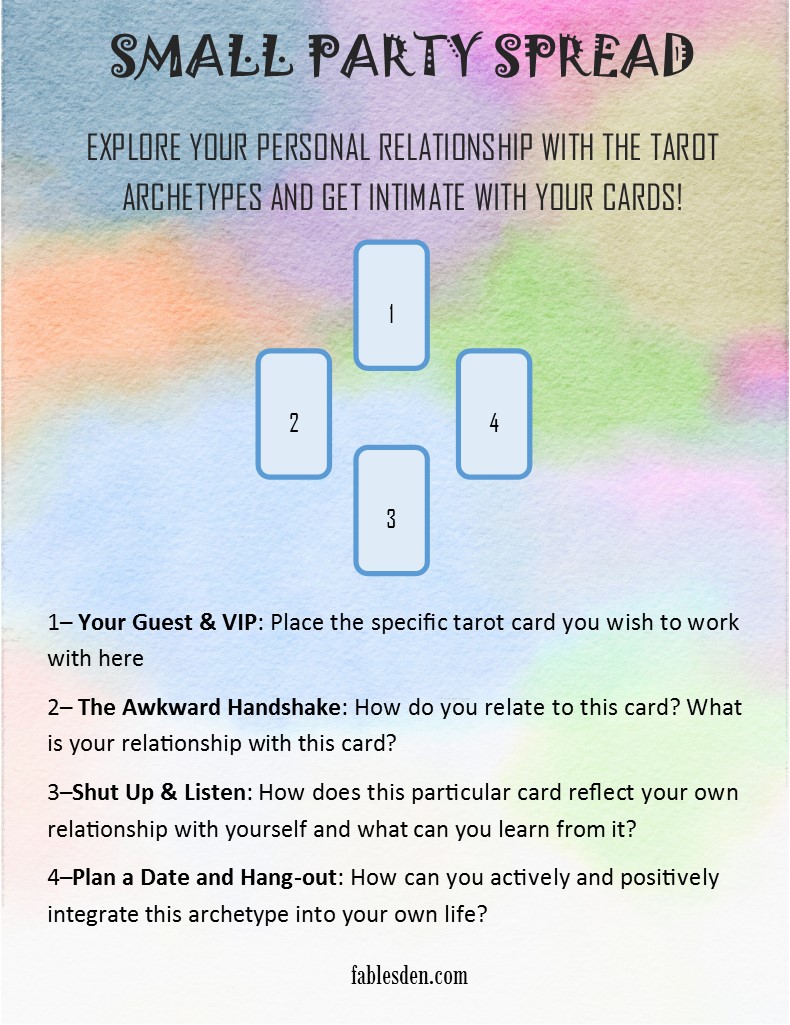Are You on Good Terms with Your Cards? Exploring Your Relationship with Tarot
What does it mean to be on “good terms” with your cards? I know a lot of people would jokingly, half-jokingly, or not-so-jokingly talk about how their tarot deck is being angry with them, or a deck would simply spew out cards to confuse the hell out of the reader - almost out of spite.
Well, feelings aside - I believe our relationship and connection with each card can actually inform us on the archetypes that are close to us and the archetypes that are not. This means that the cards that you really like, and the cards that you really connect to are likely archetypes or archetypal narratives that are inherent in your personality or narrative. It’s something you have experienced, internalized, and came to understand.
The cards that you feel a little bit alien towards - you know who they are - the cards that you would stare blankly at, and you would logically understand what it’s supposed to mean, but you just don’t “feel it”, or can’t feel into it. Your unfamiliarity and inability to form an immediate connection with a card may reflect many things about you: you may have failed to integrate this archetype into your personality, it may be an archetype that you don't really practice in your day-to-day life, or it may be an archetype that you have repressed. By examining your response and relationship with the cards, you will also be examining your relationship with your Self.
In this post, we are going to explore the different types of relationships you can have with one card - and by figuring out where you stand with a particular archetype, you can seek to integrate it and hone in on it. All of the activities you find here in this post are designed to help you explore a single tarot archetype so you can learn more about how those archetypal energies, personalities and scenarios play out in your life and your psyche.
Hopefully these activities will help you deepen your bonds with your deck and also help you cultivate a deeper awareness towards your own complex innerscape!
Exercises 1: identify the types of relationship that you have with the tarot cards
Pick up your go-to deck, a new deck, or a deck that's been sitting on your shelf patiently waiting for your attention. Any deck, really! After you've selected your deck, go through the 78 cards and identify your relationship type for each card and create 3 piles for your peeps, acquaintances, and aliens.
Peeps are cards/archetypes you can immediately form a connection with. They are usually cards that represent traits or experiences that you visibly recognize or identify. If you look at your peeps cards, how do they paint a picture of yourself, your personality, and worldview? Are there any surprises? Why or why not?
Acquaintances are cards you can understand on a theoretical and logical level but have not been fully integrated into your understanding on a practical level. How do you define each card? How are they different from the conventional or traditional meanings of tarot? When is the last time you have had a [insert tarot card] moment? To what extend does this tarot card reflect your thoughts, attitudes and actions? Are they concepts or practices that you aspire to? Do you wish there are more [insert tarot card] moments in your life? Why or why not?
Aliens are the ones that feel distant and it is difficult for you to wrap your head around them or form a personal connection with them. They usually represent aspects of yourself that you have repressed, failed to recognize, or seldom practiced. Why do you think you have difficulty connecting this card? In what way is this archetype absent, repressed or ignored in your life? How much of it is your own doing? (Consider the suits and elements as well. For example, if lots of wands show up in your selection, do you think you have issues with feeling motivated or implementing creative momentum in your life? If lots of Queens show up, do you think you have issues with the concepts of caring and nurturing?)
Exercise 2: exploring a card and making personal connections
Choose one card from your deck that you want to work with specifically. List 5 key concepts or key words that it embodies, then relate each key word or concept to your own life. For example:
Name of Card: Emperor
Key words/concepts: authority, structure, business, masculinity, control
authority: I have no issues with authority figures and have no trouble following orders when they are reasonable. I do have a rebellious streak when the instructions I have been given are overly demanding or unreasonable. On a personally level, I have trouble speaking up for myself or upholding personal authority, especially when it comes to emotional boundaries and saying "no" to others.
structure: I am a go-with-the-flow person so I don't like to implement to many routines or too much structure in life, but as a result I often procrastinate and use "go with the flow" as an excuse to not push myself harder or be productive.
Exercise 3: Do a tarot reading for yourself using the Small Party Spread!
A small party is an intimate get-together in which you are able to interact closely with your very important guests. I thought this was the perfect idea for a spread title because the purpose of this spread is to help you explore your relationships with tarot and yourself, so you get to be better buddies.
More Questions for Journaling & Reflections
When you pick up a particular card and engage with it, are you having a positive or negative reaction? Each tarot carries both the light and shadow aspects of that archetype--which one is speaking to you more? Why do you think that is?
In addition to examining your own relationship with yourself and how the tarot archetypes are reflecting your inner shadowscapes, you can explore how some of the archetypal energies you are working with have actually come from an external source. Does anyone in your life embody this archetype? Are they a positive or negative influence? How have they changed the way you regard certain archetypes? (E.g. how does your father change your way of relating to the Emperor, etc?)




